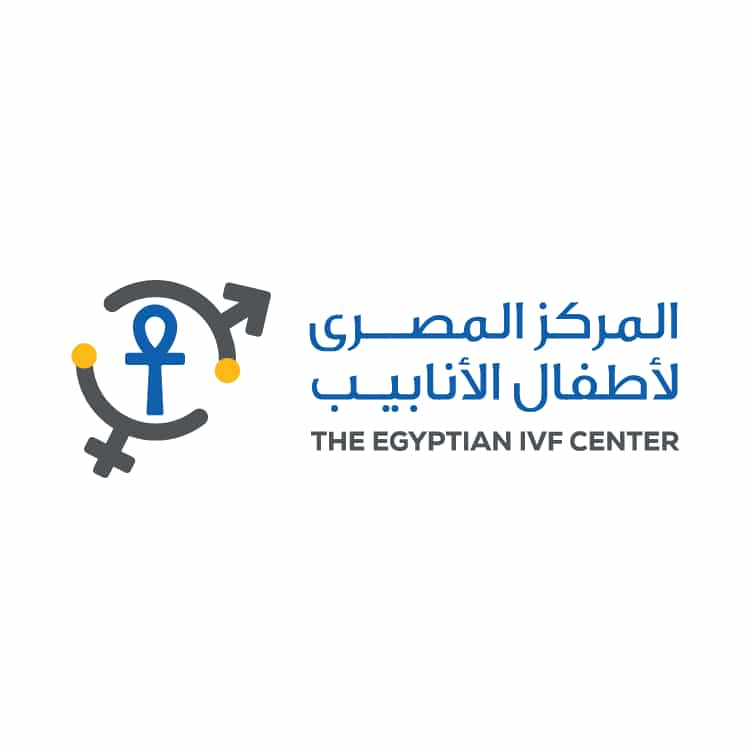UAE Surrogacy Laws 2025: What You Need to Know

The landscape of fertility and family-building in the United Arab Emirates has undergone a significant and welcome transformation. For a long time, individuals and couples facing challenges with conception had limited options within the country. However, recent legal amendments have opened up new possibilities, with the most notable being the legalization of surrogacy in the UAE. This move reflects a more progressive and inclusive approach to assisted reproductive technology, offering hope to many who dream of parenthood.
This comprehensive guide will walk you through the nuances of the new surrogacy laws in the UAE. We will address the most pressing questions people are asking on platforms like Google, Quora, and various online forums. From the legality and eligibility criteria to the costs and procedures involved, consider this your go-to resource for understanding this groundbreaking development in UAE law.
Is Surrogacy Officially Legal in the UAE?
"Yes, as of recent legal amendments under Federal Decree-Law No. 17 of 2023, surrogacy is now legal in the United Arab Emirates. This law has removed the previous prohibitions, making it a viable option for couples seeking to have a child."
The UAE has taken a monumental step by decriminalizing surrogacy. Previously, any form of surrogacy agreement was considered a criminal offense. The new legislation marks a significant departure from this stance, aligning the nation with a more modern and compassionate perspective on family building. This change is part of a broader liberalization of laws related to medically assisted reproduction, signaling a new era for fertility treatments in the region.
The updated law specifically removes the articles that previously banned the practice. This change is a beacon of hope for many who previously had to travel abroad for surrogacy services, often at great expense and personal disruption. Now, they have the opportunity to pursue this path to parenthood within the UAE's regulated healthcare system.
Who is Eligible for Surrogacy in the UAE?
"Eligibility for surrogacy in the UAE depends on marital status and religion. Married Muslim couples and both married and unmarried non-Muslim couples are eligible to pursue surrogacy, provided they meet the regulatory requirements of their respective emirate."
The new law makes a clear distinction based on religion and marital status. For Muslim couples, a legal marriage is a prerequisite for undergoing surrogacy. This is in line with Islamic principles that emphasize the sanctity of marriage for procreation.
For the expatriate community and non-Muslim residents, the law is more flexible. Unmarried non-Muslim couples can now access surrogacy and other assisted reproductive technologies. This inclusive approach recognizes the diverse demographics of the UAE and caters to the needs of a wider segment of the population. It is a significant step towards ensuring that more people have the opportunity to build their families.
Are There Any Restrictions on the Gametes Used in Surrogacy?
"Yes, a crucial restriction is that the sperm and egg used in the surrogacy process must come from the intended parents themselves. The use of donor eggs or sperm is strictly prohibited in the UAE."
This is a critical aspect of the new law that intended parents must understand. The child born through surrogacy must be the biological offspring of the couple commissioning the process. This means that the genetic material—the egg and the sperm—must originate from the intended mother and father.
This regulation ensures that the lineage of the child is clear and directly linked to the couple who will be raising them. Consequently, options such as using an egg donor if the intended mother is unable to produce viable eggs, or a sperm donor if the intended father has fertility issues, are not permitted within the UAE's legal framework for surrogacy.
How is Surrogacy Regulated in Different Emirates?
"While the federal law permits surrogacy, the specific regulations and implementation are delegated to the health authorities in each individual emirate. Therefore, the exact procedures and requirements may vary between Dubai, Abu Dhabi, and other emirates."
The federal law provides the overarching legal framework, but the on-the-ground implementation is managed at the emirate level. This means that bodies like the Dubai Health Authority (DHA) and the Department of Health – Abu Dhabi (DoH) are responsible for setting up the specific protocols and guidelines for surrogacy within their jurisdictions.
Couples interested in pursuing surrogacy will need to apply for approval from the relevant regulatory body in the emirate where they plan to undergo the procedure. It is anticipated that these authorities will establish clear criteria for the selection of surrogates, the legal agreements involved, and the overall process to ensure it is conducted ethically and safely.
What is Gestational Surrogacy, the Permitted Form in the UAE?
"Gestational surrogacy is the only form of surrogacy that will be permitted in the UAE. This is where the surrogate mother carries a pregnancy created from the egg of the intended mother and the sperm of the intended father, meaning she has no genetic link to the child."
In gestational surrogacy, the surrogate, often referred to as a gestational carrier, acts as a host for the embryo. The embryo is created through in-vitro fertilization (IVF) using the gametes of the intended parents. The surrogate's role is to carry the pregnancy to term and deliver the baby.
This is in contrast to traditional surrogacy, where the surrogate's own egg is used, making her the biological mother of the child. The UAE's focus on gestational surrogacy ensures that the intended parents are the sole biological parents, simplifying legal parentage and aligning with the legal framework's emphasis on the couple's genetic link to the child.
Do I Need to be a Resident to Undergo Surrogacy in the UAE?
"While the law primarily caters to residents, the specifics of whether non-residents or medical tourists can access surrogacy services will likely be clarified in the detailed regulations issued by each emirate's health authority."
The initial focus of the law is to provide a solution for the residents of the UAE who have been waiting for this option. The accessibility for non-residents or those specifically traveling for medical tourism is a detail that is expected to be addressed in the forthcoming emirate-level regulations.
Given the UAE's position as a leading destination for medical tourism, it is plausible that in the future, a structured program may be developed for international patients. However, for now, the priority is to establish a robust and well-regulated system for the local population and residents.
What is the Estimated Cost of Surrogacy in the UAE?
"The exact cost of surrogacy in the UAE is still being determined as the practice is new. However, it is expected to be a significant investment, encompassing medical fees for IVF, compensation for the surrogate, legal costs, and administrative charges."
As clinics and legal firms begin to offer surrogacy services, a clearer picture of the associated costs will emerge. The overall cost will be influenced by several factors, including the clinic's fees, the complexity of the medical procedures, the compensation and care provided to the surrogate mother, and the legal fees for drafting and executing the surrogacy agreement.
It is advisable for intended parents to budget for a comprehensive process that includes all medical, legal, and logistical expenses. Comparing the offerings of different licensed facilities will be crucial in making an informed financial decision.
What are the Legal Steps Involved in a Surrogacy Arrangement?
"The legal process will involve a comprehensive surrogacy agreement that outlines the rights and responsibilities of both the intended parents and the surrogate mother. This agreement will need to be approved by the relevant regulatory authorities."
A legally sound surrogacy agreement is the cornerstone of a successful and secure surrogacy journey. This document will cover all aspects of the arrangement, including the surrogate's compensation, her medical and lifestyle responsibilities during the pregnancy, and the transfer of legal parentage to the intended parents after the child's birth.
It is imperative to engage experienced legal professionals who specialize in family and reproductive law in the UAE. They will ensure that the agreement complies with all the new legal requirements and protects the interests of all parties involved, particularly the welfare of the child.
How Will Parentage be Established for a Child Born Through Surrogacy?
"The new law facilitates a straightforward path to establishing legal parentage for the intended parents. The child will be registered in the names of the intended parents who are also the biological parents."
One of the most significant advantages of the new law is the clear framework for establishing parentage. Since the child is biologically related to the intended parents, the process of obtaining a birth certificate with their names as the legal parents is expected to be streamlined.
This avoids the complex and often lengthy legal battles over parentage that can occur in jurisdictions with less clear surrogacy laws. The acknowledgment of the intended parents as the legal parents from birth provides security and peace of mind for the new family.
Are there Ethical Considerations Taken into Account?
"Yes, the UAE's approach to legalizing surrogacy is expected to be heavily guided by ethical considerations to protect all parties involved, especially the surrogate mother and the child. The regulations will likely include stringent screening and counseling processes."
The health authorities in each emirate are tasked with ensuring that surrogacy is practiced in an ethical and responsible manner. This will involve thorough medical and psychological screening of both the intended parents and the potential surrogate to ensure they are prepared for the journey ahead.
Counseling will be a crucial component, helping all parties understand the emotional and psychological aspects of surrogacy. The well-being of the surrogate mother throughout the pregnancy and postpartum period will be a primary focus, ensuring she receives the best possible care and support.
Ready to Explore Your Options for Building a Family?
The new era of legal surrogacy in the UAE opens up a world of possibilities for those who have faced challenges on their path to parenthood. If you are considering your options, it is essential to seek guidance from trusted experts in the field.
PlacidWay is your partner in navigating the complexities of medical treatments worldwide. We can connect you with leading fertility clinics and legal professionals to help you explore your options for building a family. Explore our network of healthcare providers and take the first step towards realizing your dream of parenthood.




.png)




.png)

.png)







Share this listing